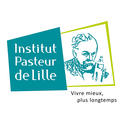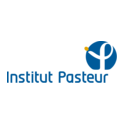In short
Tuberculosis (TB) ranks among the most deadly infectious diseases in the world. It can be treated with antibiotics but the spread of antibiotic-resistant strains is steadily increasing. Moreover, the current tests for drug resistance in TB take many weeks, as the bacterium grows extremely slow in culture. In the frame of this project, we are developing a diagnostic test to detect TB and its resistance to drugs in less than two days.
Project description
Recent World Health Organisation (WHO) reports estimate that ⅓rd of the world’s population is infected by Mycobacterium tuberculosis, inflicting 10.4 million new cases of tuberculosis in 2015 and leading to 1.8 million deaths. Moreover, due to inappropriate drug use, multi-drug resistant TB (MDR-TB) is emerging worldwide. This led to 480 000 new cases globally in 2015, while 117 countries even reported eXtensively Drug-Resistant (XDR)-TB case(s).
The current standard test for MDR-TB is culture-dependent and takes 2-8 weeks. Recently, novel molecular, DNA-based methods are successfully developed. Although these are fast and sensitive, they lack flexibility towards second line and novel drug combinations due to a limit knowledge on resistance-causing mutations. Therefore, the development of a next-generation drug susceptibility testing (DST) capable of being performed at microscopy centers was set as high-priority diagnostic target by the WHO. Fast diagnostics will accelerate the application of efficient and patient-specific drug therapies, thereby, reducing the spread of MDR-TB and lowering medical care cost.
In this project, we develop a diagnostic assay to detect drug sensitivity in M. tuberculosis. By studying the intracellular responses of the bacteria in the presence and/or absence of drugs, we use a new approach to detect drug susceptibility. The assay will be optimized towards clinic samples and several old en new TB-specific drugs and validated for a large collection of M. tuberculosis samples.
Beside the introduction of a new, fast and accurate diagnostic DST test for the antibiotics validated in the project, the assay also serves as a platform which can be easily extended towards other/new drugs. Moreover, this study contributes to the expansion of the molecular knowledge on M. tuberculosis and drug resistance.
Sciensano's project investigator(s):
Service(s) working on this project
Partners







